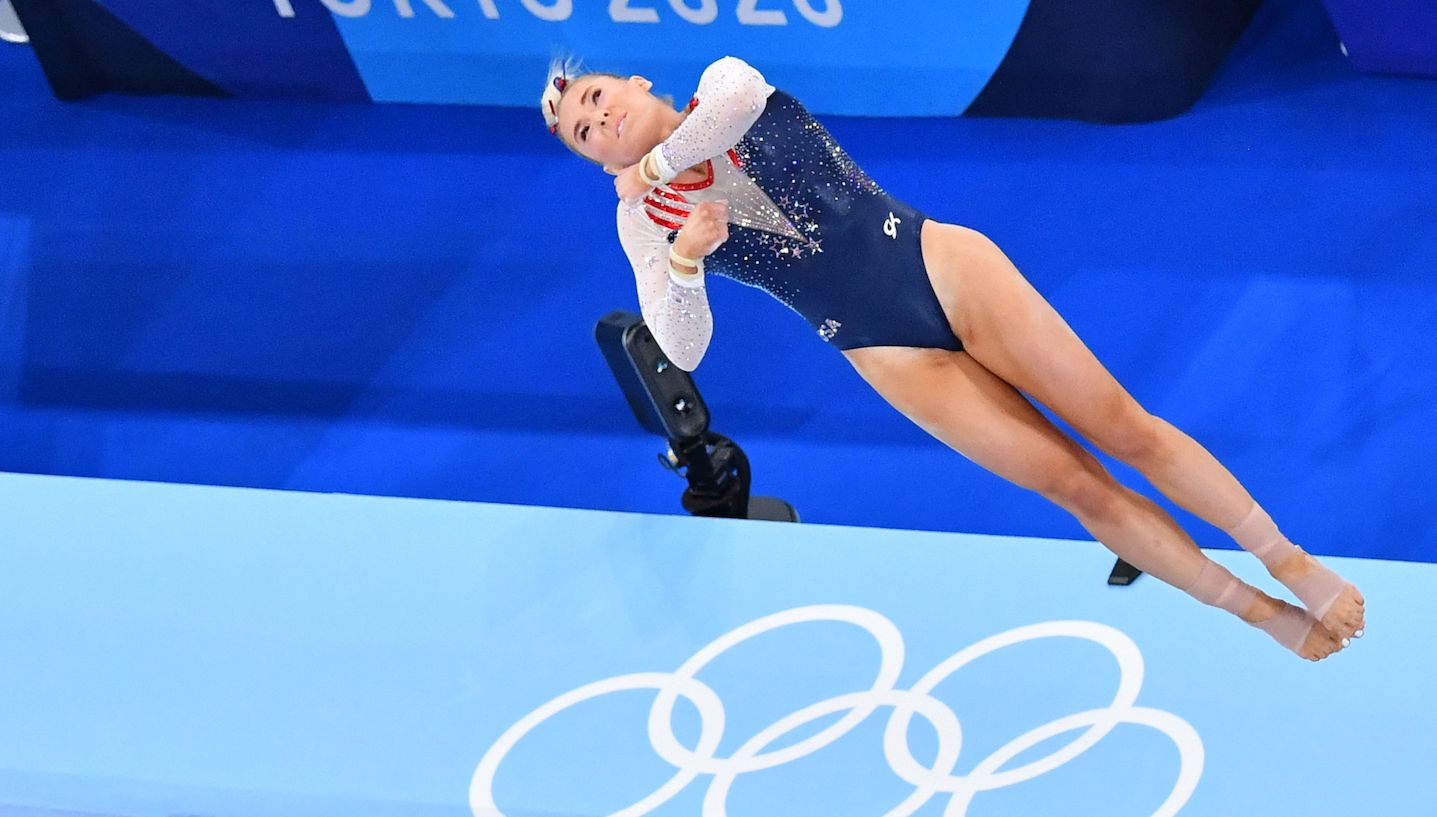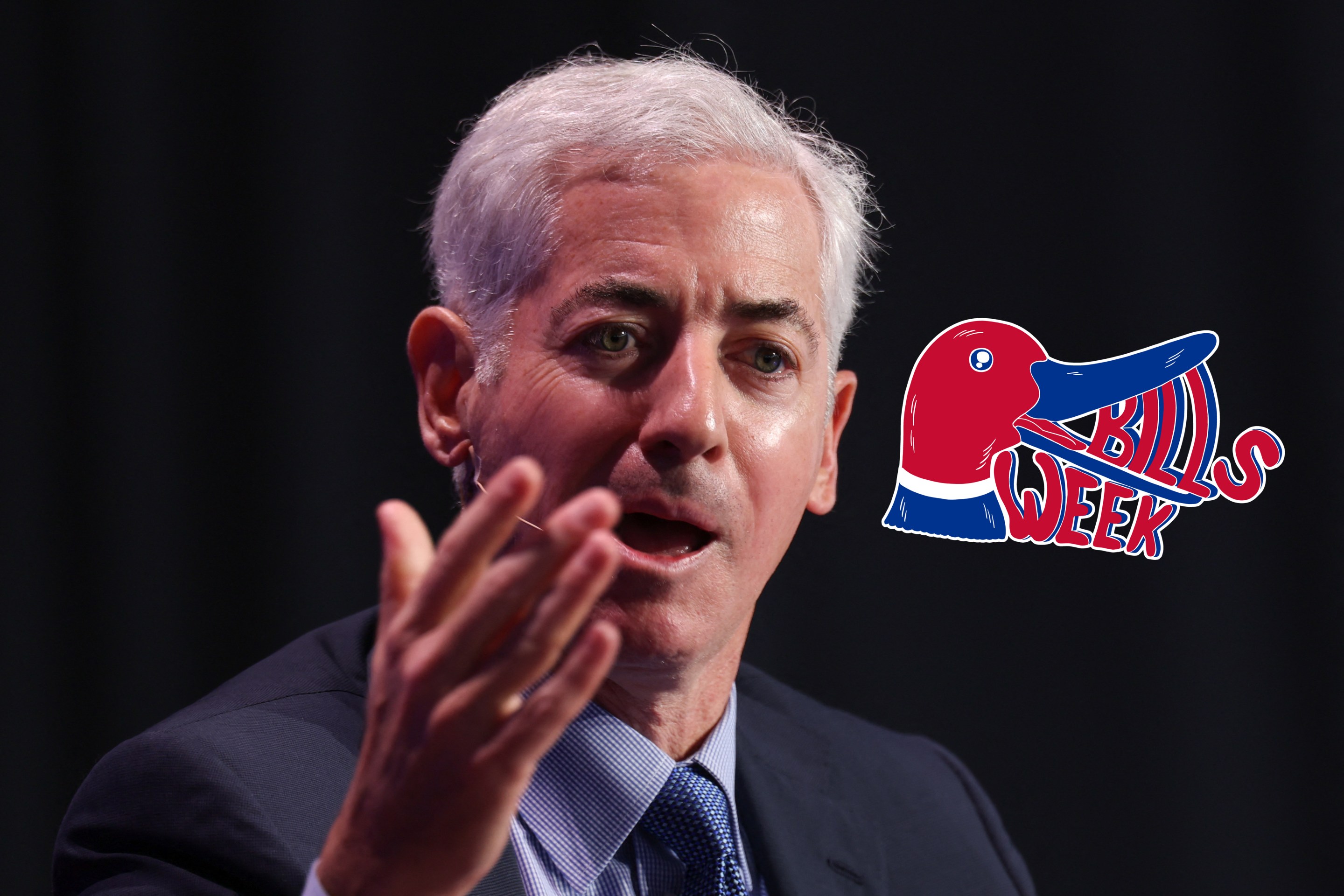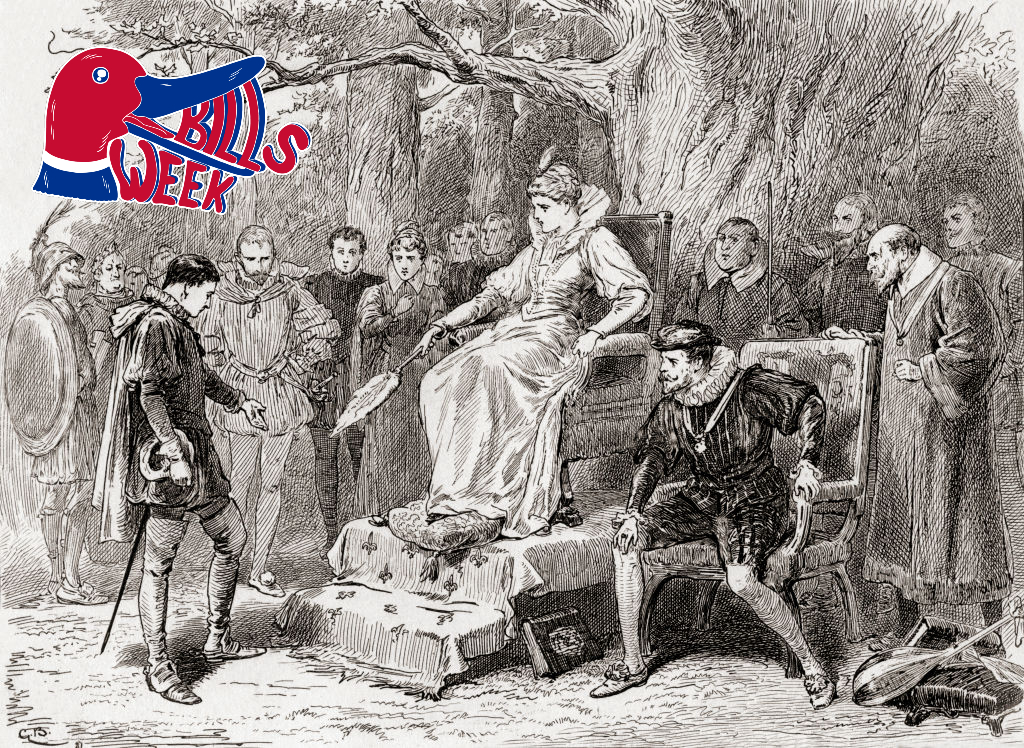MyKayla Skinner thought her Olympics were over last week. As an individual athlete for Team USA, Skinner finished fourth overall in vault, her best event, in the qualifying round. She did exactly what she needed to do, sticking both her vaults, but teammates Simone Biles and Jade Carey finished just ahead of her in first and second, and she was excluded from the vault final because of the two-per-country rule. She had an emotional moment with her coach on the competition floor when Carey’s score posted, as she realized she’d be leaving Tokyo without an Olympic medal. Not only was her Olympic dream over, but this moment also marked the end of her gymnastics career.
At 24 years old, Skinner, like Biles, struggled with the extra year of waiting and training for the 2021 Olympics. In the spring of 2019, after her junior season, Skinner left her college gymnastics career at the University of Utah to come back to elite gymnastics and make a run at the Olympics. She had been named an alternate for the 2016 Rio Olympic team, which she’s described as a tough experience, one that motivated her to keep going.
“I remember crying a lot of the time,” she said on her Youtube channel. “It’s really hard training for something when you know you might not compete and it’s hard work.”
Typically, gymnasts retire from elite gymnastics to compete in college gymnastics, and once they graduate, their gymnastics careers are over. A comeback from college to elite gymnastics was unheard of. On top of that difficulty, her comeback bid took a hit in January of this year, when she landed in the hospital with pneumonia from COVID-19.
Skinner finished fifth overall at the Olympic Trials in June, and USAG high performance director Tom Forster picked the top four athletes for the team, despite the fact that a team with Skinner on it would place a couple tenths higher than the team Forster selected. He named Skinner as an individual athlete, meaning her scores would not count for the team final, but she’d be eligible to qualify for event finals. In 2016, Skinner had finished fourth overall at Olympic Trials, but that year, the strategy in team selection was different. Marta Karolyi picked Gabby Douglas (who finished seventh overall, but was the 2012 Olympic All-around gold medalist and team gold medalist and experienced in international competition) and Madison Kocian (who finished sixth overall, but was chosen as an uneven bars specialist) for the team, and named Skinner an alternate.
This is where Skinner’s reputation as USA gymnastics’ most polarizing athlete was born. Following the ‘16 team selection, Skinner retweeted a photo of herself cropped over Douglas in the team photo, which many interpreted as proof that Skinner was narcissistic and, more seriously, racist.
“I retweeted it,” Skinner said on the Peacock docuseries Golden. “I feel like this whole thing blew up, MyKayla is mean and all this stuff, and now she's racist. So many things happened because of this one retweet. In the moment I didn't really think of how that could affect other people. It would be nice to apologize to like, everybody and just say that I didn't mean to hurt Gabby or anybody. I regret it for sure.”
In college, Skinner’s villainous image only grew. She celebrated wildly after hitting great routines, and publicly questioned judges when she felt she deserved better scores. That intensity is still evident in competition today. At the Olympic trials, I sat right in front of vault, and just before her turn, Skinner turned to the stands and raised her arms to encourage the crowd to cheer for her. No other gymnast did that. And after hitting four of four routines in qualifying at the Olympics, Skinner ran off the podium after each event fist-pumping and clapping.
In some ways, Skinner has matured since 2016. She was voted by her national team teammates as the sportsperson of the year, alongside Laurie Hernandez. But when she was left off the four-member Olympic team this year, she liked tweets that questioned USAG’s decision, and after the U.S. team won silver in the team final, Jonas Harmer, her husband, posted to his Instagram story, “Funny how when you don’t take the team that gives you the best chance of winning gold… you don’t win gold.”
The emotions. All of them.
— #TokyoOlympics (@NBCOlympics) June 28, 2021
MyKayla Skinner.#GymTrials21 pic.twitter.com/TYw0LvgDSo
After the U.S. finished vaulting in qualifying, Skinner looked visibly shaken as the U.S. waited to head to their next rotation, standing apart from her teammates and wiping her nose with her grips.
“Heartbroken is an understatement,” she posted on her Instagram, “But I am proud of myself for getting here after everything I’ve been through.” Biles tweeted a tribute to Skinner: “thanks for always keeping gym light hearted and fun! love you! you’re amazing ms olympian.”
Skinner cheered on her teammates from the stands during the team final and the all-around final, and she had plans to fly home to Arizona last week. But then Biles came down with a bad case of the twisties, and it became possible that Skinner might not be retired just yet. On Saturday, Biles announced she would not compete in the vault final, clearing the way for Skinner to add an Olympic medal to her comeback story.
On Sunday morning, Skinner took the podium first of the eight athletes. She looked nervous as she motioned through her vault with her arms while waiting for the go-ahead. She did a Cheng for her first vault, (a layout front flip with 1.5 twists) reserved only for the absolute best vaulters in the world, with a 16.0 start value. Skinner had a hop backwards on her landing, but otherwise nailed her Cheng and scored a 15.033. For her second vault, Skinner did an Amanar, a vault with 2.5 twists in the air and a blind landing. She hopped sideways on her landing and scored 14.800.
Skinner’s average for both vaults, 14.916, was an improvement from her 14.866 score in qualifying. She clapped and fist-pumped and waved after her second vault, and then just had to wait through the next seven athletes to see if her scores would hold for a medal.
Brazilian gymnast Rebeca Andrade, who finished with the silver medal in the all-around, had the third-best score from qualifying, right behind Biles and Carey. She also did a Cheng and an Amanar, and got some major height on both vaults, flying through the air for a 15.083 average that put her in first.
Next up was American Jade Carey, the favorite to win this Biles-less competition. Carey stumbled on her steps on her approach, somehow saving herself from injury, doing a simple Yurchenko double tuck vault. She scored an 11.933—a devastating outcome considering Carey decided three years ago to earn her individual Olympic spot by competing in the apparatus world cups, specifically in vault. She traveled around the world competing in vault to make it to this moment and guarantee herself a spot in this final.
Gymnastics Twitter and coaches erupted in criticism of FIG, the international gymnastics governing body, which currently does not allow athletes to take a podium warm-up (called one touch, where the athletes have 30 seconds to mark through their routine on the actual apparatus) before individual event finals of major competitions, including World Championships and Olympic games. The athletes do get a chance to warm up on the apparatus, but it’s well before their competition time.
After today I hope that the @gymnastics realizes how important the touch warmup is for the safety and well being of the athletes! And also can we do the awards at the very end so they don’t wait even longer than they should to compete 😳
— Cecile Landi (@CLcecile) August 1, 2021
After landing her second vault, an Amanar, Carey embraced Skinner and then her dad Brian, who is also her coach.
Korea’s Yeo Seojeong then landed her own signature vault, a powerful front handspring double full (with a 6.2 difficulty score, the highest of any vault performed in the final) and scored a 15.333, the best score of the vault final, putting her in position to shake up the top two with her second vault. Seojeong’s second vault, a double-twisting Yurchenko was impressive, but she took three big bounding steps backward on her landing for a 14.133, putting her in third place behind Skinner.
This was the vault final of ultimate comebacks. Andrade, 22, has torn her ACL three times in four years. She came away with the gold, and Skinner with silver. It’s been a long road to that silver from elite to Olympic alternate to college back to elite, battling COVID, missing out on the four-member team again, thinking she was shut out of medal and getting ready to go home. After all that, Skinner is not just Ms. Olympian, as Biles dubbed her last week. She’s now Ms. Olympic silver medalist.







